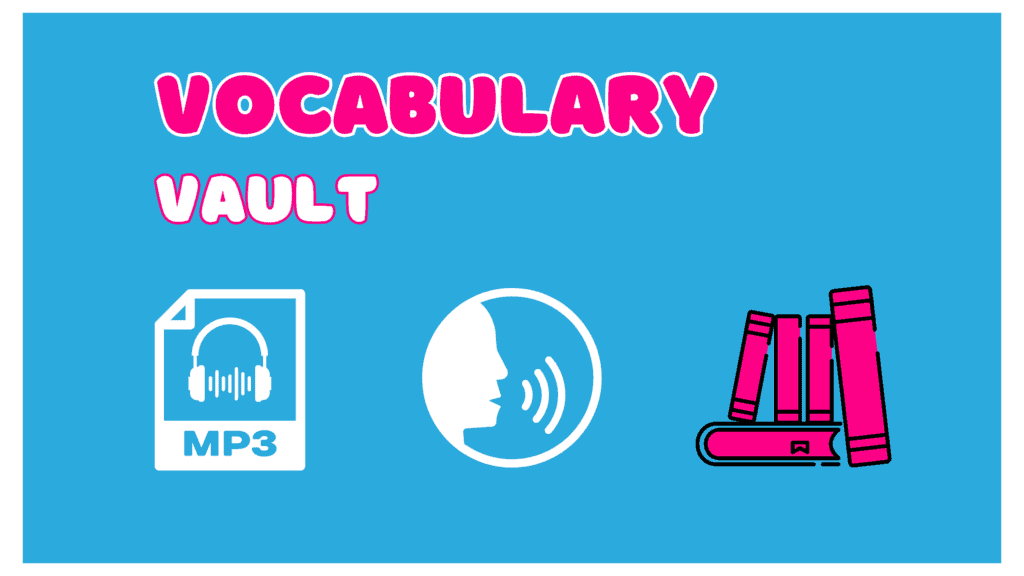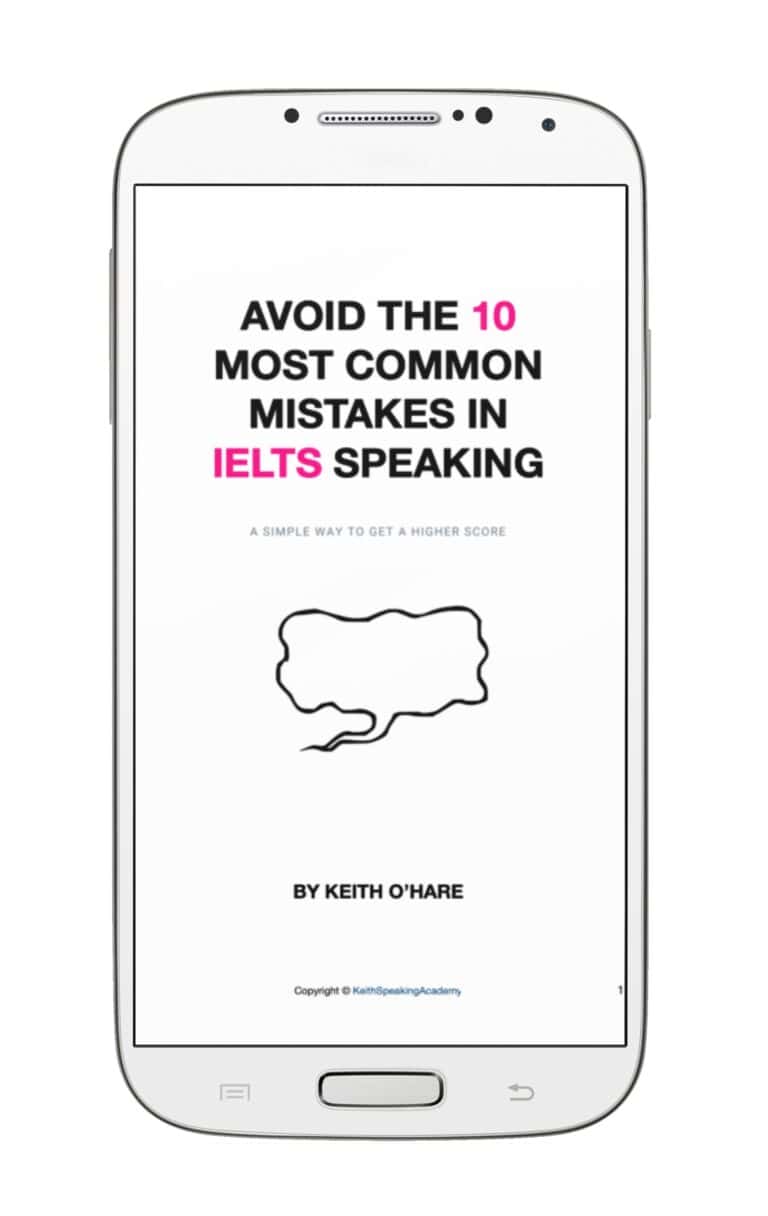IELTS Speaking Lesson about Complaints
👇 Take this lesson with you! 👇
Table of Contents
IELTS Speaking vocabulary: Complaints
Fill in the gap with one or two words
- The service here is terrible, I am going to ____ a complaint
- Will you stop ____ about the weather, we can’t change it!
- To complain (v.) + to someone / about something
I want to complain to the management
I want to complain about the poor service
- To make a complaint (n.)
- To make a complaint to someone
- To make a complaint against someone
He made a complaint to the management
He made a complaint against his boss
- To make a complaint about something / someone
He made a complaint about the long working hours
More formal
- To file / lodge / voice a complaint
- To make a formal complaint in writing
What do people complain about?
1. General Everyday Complaints
Notice: All the following need the article ‘the’
- The weather
- The government
- The price of vegetables
- The cost of living
Notice: All the following do not take ‘the’
2. Specific Complaints
Bad customer service
- hotels
- restaurants
- shops
Faults with products
- have a defect [=something doesn’t work]
- wrong colour
- wrong size
- broken
Delays and cancellations
- airports
- train stations
- meetings
- traffic jams
Unfair treatment at work, school or in a shop
- bullying
- harassment
- insults
- unfair dismissal
- discrimination.
People’s behaviour
- littering
- being noisy
- being rude
IELTS vocabulary: Complaints listening task
Listen and mark the words you can hear!
complain | moaning | grumble |
moan | harping on about | grumbling |
go on about | harp on about | whingeing |
The words mentioned are marked in bold.
complain | moaning | grumble |
moan | harping on about | grumbling |
go on about | harp on about | whingeing |
The other day I met up with my friend Mr. Grumble and we went shopping together.
He was looking for a new phone so we went around a local shopping mall and he started grumbling about the price of the phones, about it being a rip-off (too expensive), about the quality.
In the end, he was whingeing so much that I decided to take him for a coffee and a snack just to perk up (cheer up / to be happier / in a better mood), but then he started harping on about the coffee. It’s too cold, it’s too weak.
Oh dear some people they’re just never happy.
Customer service
What makes good customer service?
Which of these is the most important?
- Be professional
- Listen carefully
- Be friendly
- Be empathetic
- React quickly
- Do everything the customer asks
Find out more about what makes good customer service here.
Collocations
- Deal with / respond to / handle complaints
- Solve / resolve / sort out a problem
“She dealt with the problem swiftly and it was all sorted out within 5 minutes; great customer service!”
- Apologise to someone
- Apologise for / about something
She apologised to me about the long delay.
He apologised for any inconvenience caused.
- I was satisfied with the outcome / result / solution

IELTS Speaking idioms: Complaining
- To kick up a stink / fuss = to complain noisily about something
My toddler always kicks up a fuss when it’s time for bed, insisting on one more story.
- To go the extra mile = to do more than is expected (when serving others)
Despite the lecture having finished, Lisa went the extra mile by staying on for half an hour answering extra questions.
- To make noises = to complain or make trouble
If the waiter doesn’t get the order right this time, I’m going to start making noises.
- To put your foot down = To assert yourself firmly
When the train was delayed a third time, I decided to put my foot down and demanded a refund.
IELTS Speaking part 2 model answer: A complaint
- Listen and watch the model answer
What was the complaint about?
The complaint was about poor quality food in a restaurant.
2. Listen again and note any useful vocabulary (collocations or idioms)
A couple of years ago, I found myself in a charming little restaurant.
It was one of those places you hear about through word of mouth (to hear about from other people, to hear on the grapevine) and
I had heard some rave reviews (very good reviews) about their Ratatouille, a dish. So it was a no-brainer (obvious choice) what I was going to order.
Now, I’m not one to kick up a fuss usually. In fact, I tend to shy away from (avoid) any kind of conflict, but in that restaurant I had to make an exception (not to do the usual thing)
The waiter was very pleasant, handed me the menu, and I placed my order (ordered)
Some time passed, and my stomach was beginning to grumble, then the waiter arrived with my food. I thanked him, eager to dig in (to start eating)
I took one bite… and then another… but something was off (was wrong).
The vegetables were undercooked, and there was no seasoning. It was not what I was expecting. To be honest, it was inedible (cannot be eaten).
I felt I had to say something. I needed to put my foot down.
I flagged the waiter down, and when he arrived, I explained the situation.
I am sorry, but this isn’t right. The vegetables aren’t cooked, and the seasoning is off (is wrong), it’s just bland (has no taste).
The waiter’s face dropped (show a surprised face), he apologised profusely (a lot) and offered to change it. So I waited again for the same dish again.
Long story short, (in summary, or to cut a long story short) the chef came out personally with the new serving
This time it was great, the veggies cooked to perfection, the seasoning spot on (to be perfect, exactly right)
The chef apologised for the mishap and even offered a complimentary dessert to make up for it (to compensate for)
Just goes to show (the moral or message is…), you should complain if things aren’t up to the mark (good enough).
Pronunciation Files For Vocabulary From My Best Live Lessons
Use Words EASILY in English Conversations!
More Free Lessons
If you liked this lesson, leave a comment below!
There are more lessons you can follow in the links below too.
FREE TIME in IELTS Speaking. Vocabulary and idioms you need to talk about your free time.
PATIENCE in IELTS Speaking. Useful collocations and vocabulary to help you discuss about patience.
ART in IELTS Speaking. How to describe different kinds of art, feelings about art, exhibitions and art in education.
VIRTUAL WORLD in IELTS Speaking. Vocabulary and ideas to talk about the virtual world as well as some listening tasks.
PERSONAL FINANCE in IELTS Speaking. Idioms and vocabulary to learn how to manage your personal finance, earning, and saving money.


